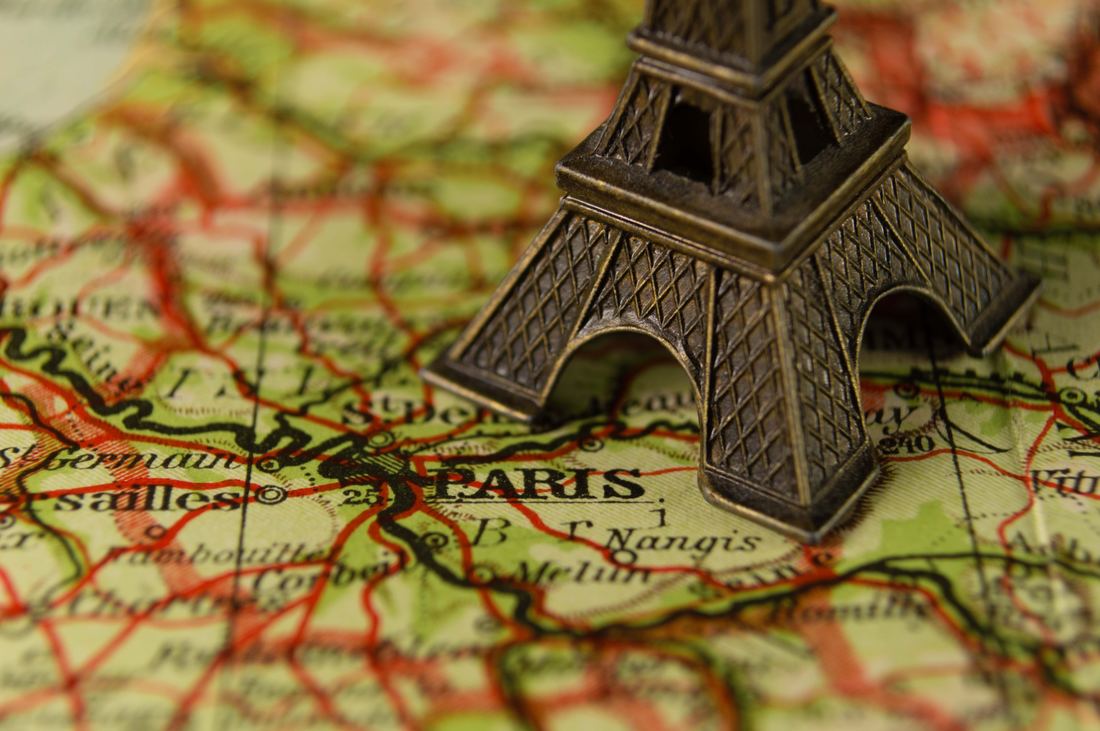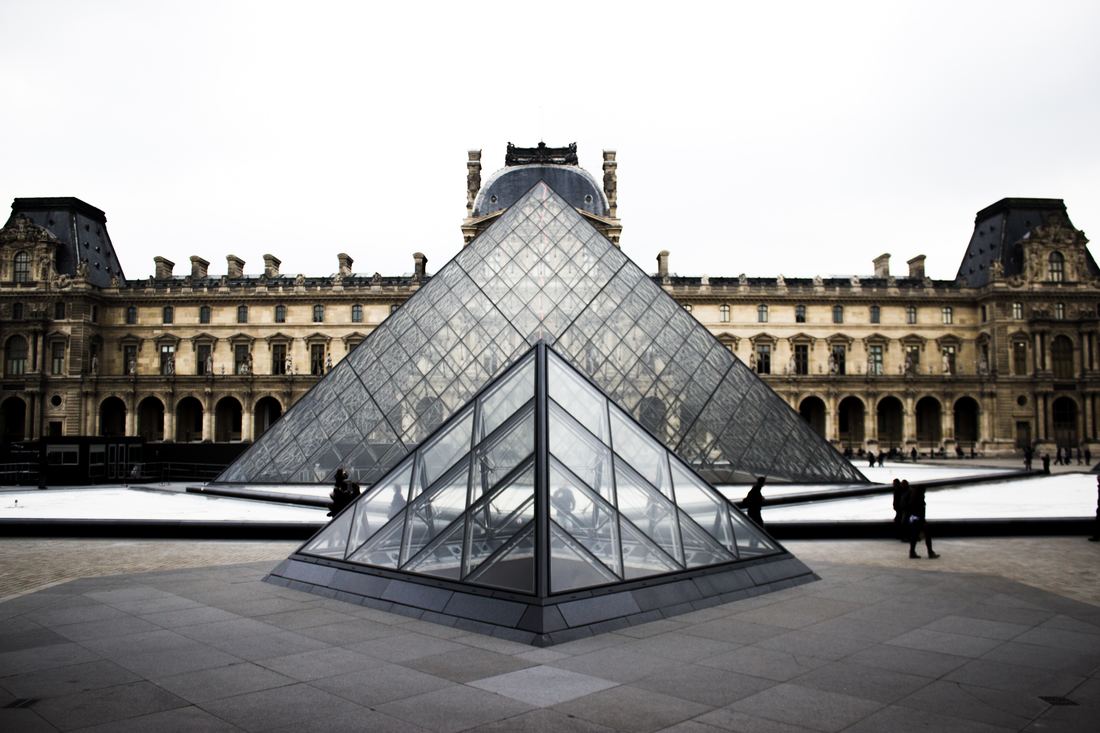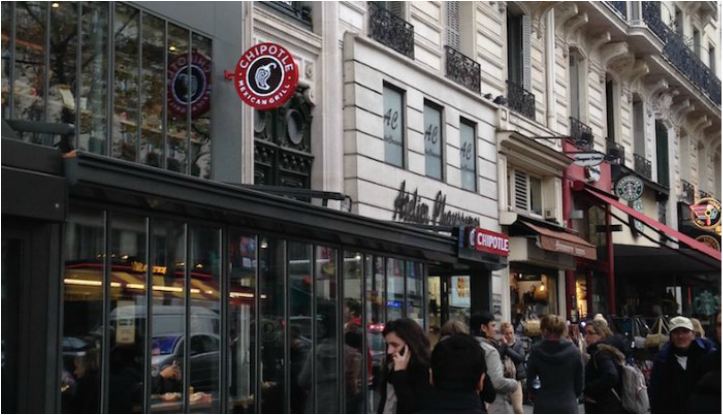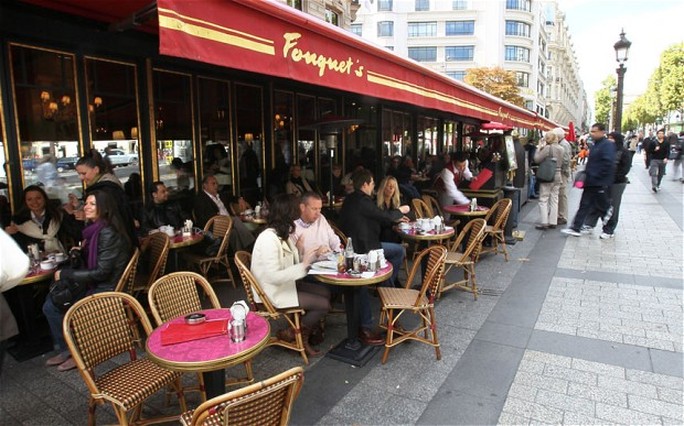France is a country rich in history, far richer than a simple article or blog post can define. This history can be uncovered by visiting France and then uncovered more by speaking the wonderful, so-called, language of love, French. Learn with us!
|
France is a country the English love to hate, it is a country that many believe is the birthplace of romance and a place where people eat frogs legs and know the difference between Champagne and fizzy wine. These are just side stories to a country that is an important political player in Europe, a master player on the world wine market and a country that is home to just shy of 67 million people of which 15% are immigrants, imports or just plain foreigners. French is the considered the language of love, and those who take the time to learn the language will soon discover that it is much richer than “Je t’adore” and “Bonsoir mademoiselle”. The French language is officially a Romance language, not romance as is love but as in Romanic, but perhaps it is all about love in a way. The language itself stems from something that sounds far less romantic, evolving from Vulgar Latin between the sixth and ninth centuries and some 800 million people now speak language around the world. French is a popular language to learn, but what about the country of France, what is its history? Anyone visiting France will instantly realise that the French are passionate, beyond merely patriotic, about their country and they have every right to be so. Being able to speak French will enable you to get a little deeper into French history on your next visit. But in short, France has a wonderful, colourful, chequered and at times fascinating past. The country we call France can be tracked back to the Iron Age and the land mass that makes up the country from North to South was once the bulk of what Rome called Gaul. The Romans noted three languages, dialects or linguistic groups in the region: the Gauls, the Aquitani, and the Belgae. In the first thousand years BC France was colonised by the Greeks, Romans and Carthaginians and Southern Gaul was annexed. The Gallic wars eventually saw France (Gaul) become integrated into the then Roman Emperor and there are still many reminders of this, none more better than Pont du Gard, the world famous roman aqueduct still operational today. Over time, what is now France, saw dynasties and kings and queens come and go with notable historical figures rising up through a series of conflicts known better as the Hundred Year’s war. One such well-known name was a young peasant girl who became a national heroine. Joan of Arc was one of many who throughout the history of France is still held high today. The French Revolution in the 1800s saw the monarchy thrown out with the country governed as a republic until Napoleon Bonaparte declared France the “French Empire”. He was soon defeated in the Napoleonic wars and France went back and forth between Monarchy and Republic for many years until 1870. The First World War was marked by many deaths and France became a battlefield and grave for many young men. Fighting alongside the United Kingdom, Russia, Italy and the Allies against Germany saw France become one of the saddest places on earth in a war that was said to be the war to end all wars. But, it was not to be. LearFrance was invaded and conquered by Nazi Germany in 1940 only to be liberated after 4 long, painful years of war. The people of France never gave up; the French resistance to this day are still considered some of the bravest, most valiant people who fought in World War II. Upon liberation, France and her people became major players on the world stage, peacekeepers, and became permanent members of the UN Security Council and NATO, immediately after the war. Today France is strong economically, culturally and politically with its military forces active against the war on terror that is taking place today. France is important and her people know it.
France is a country rich in history, far richer than a simple article or blog post can define. This history can be uncovered by visiting France and then uncovered more by speaking the wonderful, so-called, language of love, French. Learn with us!
0 Comments
 If you are considering doing business with France there are a few things to consider, according to www.austrade.gov.au. France is a member of the European Union (EU) and is subject to EU trade regulatory requirements. The most important characteristic of French business culture is the emphasis on courtesy and formality. Titles (Dr, Prof. etc.) should be used both in correspondence and in face-to-face meetings, business contacts are not normally addressed on a first name basis. Your style of dress is also very important in the business world. For men, office and corporate wear is formal consisting of suit and tie and fashionable semi-conservative wear is considered appropriate for women. French companies are interested in long-term partnerships and once established they need to be maintained with regular visits to France that will ensure continued collaboration. Although some executives speak English it is courteous to check beforehand and as always, it show respect for your business counterpart of you are able to communicate in their language. It is also prudent not to schedule business meetings in August (summer vacation) or workdays adjacent to public holidays. I found another really interesting blog written by Melanie Jones from the International Business Times and she has given 8 Cultural Cues that make (or break) a deal. I think that she has created a fabulous list so I have included them below (but for a full explanation or her points I will also add the link to her article at the end of this blog.) Tip One: Respect the Language: In much of the European Union, English is the language used for international business dealings. In France however, the situation is rather different. The French are extremely proud of their language, and there may not be another culture that so regards the language it speaks as such a symbol of the country itself. Almost everyone in the French business world speaks English fluently, but refusing even to make an attempt to learn the language will be an instant mark against you. If you don't have the time to begin learning the language, or if this is a one-time trip, at least make an effort to study some basic French phrases, and apologize for your lack of fluency early on. Your international business colleagues will appreciate the effort, and the conversation will then likely switch to English or a hybrid of the two languages. Tip Two: Know the French Business Model: When first doing business in France, the formality of the proceedings and almost obsessive adhesion to hierarchy and protocol can seem stuffy, cold or unnecessarily strict. It is important to recognize however, that business dealings are really operating on two levels. Tip Three: Put an Emphasis on Being Formal and Professional. French businessmen and women like to keep things formal to start, adhering to that strict distinction between the personal and private on the one hand and the public and professional on the other. Begin by shaking hands, and note that the French typically shake quicker and less firmly than Americans. When speaking at the start of a meeting, stick to the vous form (the professional you) until invited to use the tu form of speech (the informal you). Avoid first names, instead using their surname with Monsieur or Madame before it. French people often introduce themselves surname first, so pay close attention when you're shaking hands. Tip Four: Follow Logic. The French conversation style, especially in business, puts an emphasis on being direct and questioning. The French are most receptive to rational presentations that are well organized and presented, and will respect a low-key manner (avoid yelling, hand-waving or hyperbole) used to clearly highlight benefits. Tip Five: It doesn't hurt to be eloquent. Coupled with this stress on logic is, of course, an equal emphasis on charisma. How you argue a position in France is often as important as the argument itself, and serves as a clear indicator that you take the work seriously and are capable of nuanced thought. Eloquence is seen as a cardinal virtue in France, and French managers have been known to rise to their positions, and run their businesses, in part through the force of their rhetoric. Long-term relationships are a stable of French business dealing, and getting to know a person is done n part through reading how they present themselves and their ideas. Tip Six: Appreciate the Food, Enjoy the Lunch Hours. The only thing perhaps more lauded in France than its language is the country's cuisine, and the French take their food very seriously. Since this is also an incredibly enjoyable and indulgent part of French culture, it's best to dive into this area whole-heartedly, and with great appreciation for the delicacies in store. Business lunches are often very long, running two hours or more, and may not even involve discussing business at all. Instead, they are often used as a way to build the close relationships that sustain business ties, or perhaps to discuss the finer points of an argument or contract detail. Lunches are a big affair, so be sure to come hungry. Most consist of an appetizer, a main meal, a cheese course and dessert, with wine and coffee to drink. Tip Seven: Adjust to Physical Cues. As with every culture, the French respond to certain physical cues that indicate respect or competence. Maintaining direct eye contact while speaking for example, makes for a good first impression, and correct posture and keeping your hands out of your pockets are musts. Avoid gum chewing, snapping your fingers, or slapping your palm with your fist, as these habits are considered vulgar. Also, never make an okay sign with your fingers, as in France this symbol means nothing or zero. To show approval, simply raise your thumb. Tip Eight: Be prepared for Cultural Exchange. French people, especially those in business, couple a deep pride in their own country with an abiding curiosity about other cultures, and respect someone who can speak about their country's culture, history and politics in an educated and eloquent way. Personal ideology is also welcome in discussions, and the French appreciation for individualism carries through to a sincere admiration for freedom of opinion and knowledge of the intricacies of one's beliefs, allowing for impassioned discussion that will strengthen, not limit, a professional relationship with your French colleagues. Discussion of French cultural topics is also welcomed and appreciated, though any criticism of Napoleon is greatly discouraged.
Would you like to learn French? Available in our VLLC Melbourne Centre, VLLC Adelaide Centre and Online. http://www.ibtimes.com/doing-business-france-8-cultural-cues-make-or-break-deal-368258 |
Archives
April 2024
AboutThese blogs are about learning a foreign language and utilising that skill to forward your professional path. Categories
|








